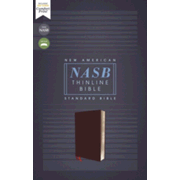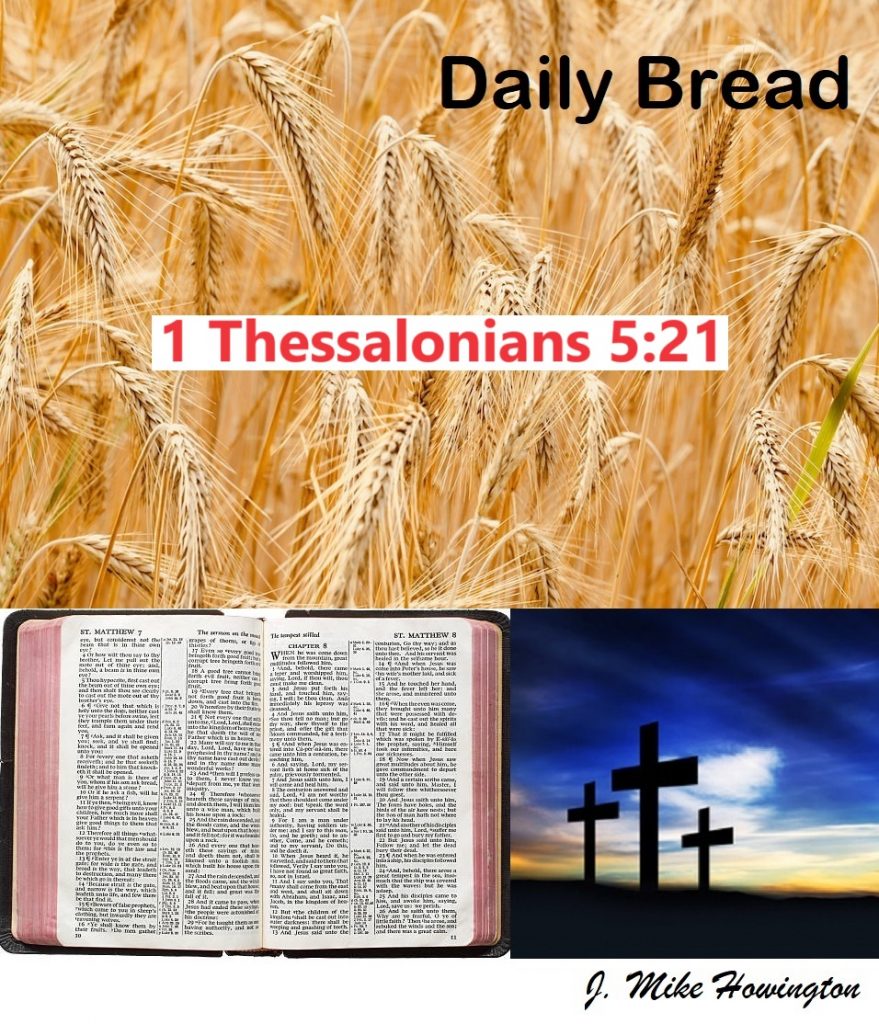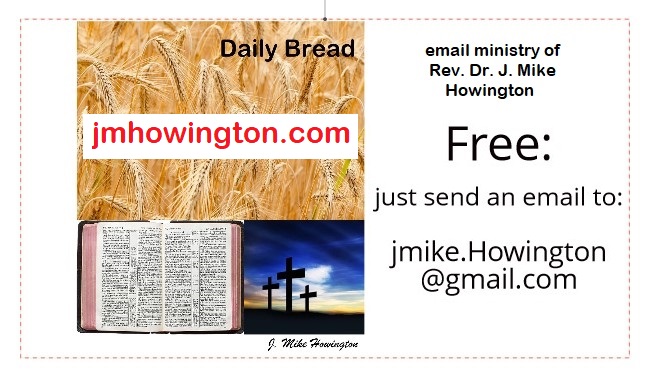To nurture our faith, we must study what the Bible reveals about faith. Carefully study the Bible teachings on faith to strengthen your beliefs. Prove what the Bible actually says, and hold fast to be the truth (1Thessalonians 5:21).
We can read and meditate on the examples of faith described in Hebrews 11. We can read the original accounts in the Old Testament and determine lessons from these accounts.
As we study, prove what we believe to ourselves and to the disciples we will make in the future. Examine everything carefully and prove that God exists and that the Bible is His inspired word. Prove what the Bible actually says, and hold fast to what you prove to be the truth. (1Thessalonians 5:21)
Transcendental arguments (a kind of deductive argument) claim to demonstrate that all human experience and action (even the condition of unbelief, itself) is a proof for the existence of God because God’s existence is the necessary condition of their intelligibility.
One of the most fascinating arguments for the existence of an all-perfect God is the ontological argument (arguments derived from reason alone). While there are several different versions of the argument, all purport to show that it is self-contradictory to deny that there exists a greatest possible being.
God allows trouble to prove the genuineness of our faith. As someone said, “The acid of grief tests the coin of belief.” When some hardship hits in your life, your faith will be put to the test.
The Bible is the Word of GodConsider these examples: Jesus declares that Scripture cannot be broken (John 10:35). Jesus calls the Old Testament “the commandment of God” (Matthew 15:3). Jesus refers to Scripture as “the Word of God” (Mark 7:13).
God provides great assistance for us to learn and grow. Especially when we are studying Scripture, we should enlist and nourish the guidance, help, and power of The Holy Spirit by praying and meditating on God’s Word frequently and regularly. Doubts will disappear as our faith grows (2 Timothy 1:6, 7).

Between the time Paul last saw the Thessalonians and the writing of this letter, he had spent time in Berea (Acts 17:10-12). There, the Christians were of a noble character because they heard Paul’s preaching and diligently searched the Scriptures to see if what he said was true. Paul wanted the Thessalonians to have more of the heart and mind of the Bereans.
Evil and deception can show themselves even in a spiritual setting, so Christians need to test all things.
When the test has been made according to the standard of God’s Word and the discernment of spirit among the leaders, we then hold fast to what is good.
Jesus declares that Scripture cannot be broken (John 10:35). Jesus calls the Old Testament “the commandment of God” (Matthew 15:3). Jesus refers to Scripture as “the Word of God” (Mark 7:13).
Prove All ThingsPaul told them, “Prove all things…(King James version)” The word “prove” is the Greek word “dokimadzo,” which means to approve after testing. In other words, don’t simply believe everything you hear. Test it before you accept it.
We “prove all things” today by the written word (Acts 17:11).
Jesus also advocated learning from the Scriptures. (John 8:31, 32)
Christianity does not require people to disregard their reason or to be credulous. It does not expect them to believe anything because others say it is so. It does not make it a duty to receive as undoubted truth all that synods and councils have decreed, or all that is advanced by the ministers of religion. It is, more than any other form of religion, the friend of free inquiry, and would lead people everywhere to understand the reason of the opinions which they entertain (Acts 17:11-12; 1 Peter 3:15). 1

In the previous verse is Paul’s instruction for the Thessalonians to not “despise” prophecies (verse 20). That does not mean accepting any and every claim of prophetic speech, of course. Here, Paul helps his readers know how to respond to prophecy. He tells them to examine every prophecy to determine whether it is valid.
The apostle John affirms Paul’s admonition regarding prophecy (1 John 4:1).
In a broader, sense, this is a useful tool for believers to apply to everything in their spiritual lives: a cautious, Scripture-tested approach. This also applies to nurturing your faith.
Paul tells them to examine every prophecy to determine whether it is valid.
If it passes examination, in the light of what the Scriptures teach (Isaiah 8:20), the believers should welcome it.
Ephesians 4:11, 12 includes “prophets” among those whom God gave to the church to help her develop spiritually. Now that God’s Word has been delivered, the need for this kind of ministry has passed. The equivalent to “prophesying” today can be described as the act of forth-telling, not fore-telling. This is carried out by the forth-telling of God’s written Word by teachers and preachers. Believers today should test messages that teachers and preachers claim to be from God. The test is not whether a preacher looks good or has a pleasing personality; it is whether his message aligns with the Word of God.
In a broader, sense, this is a useful tool for believers to apply to everything in their spiritual lives: a cautious, Scripture-tested approach.
Paul also specifically told us that we are to hold fast to that which is “good.” The word “good” is from the word kalos, which in this case, denotes something sound and in order. It’s been tested, proven, and shown to be authentic.
The word “good” here (verse 21) is not the vague and general good in the moral sense, not the same Greek word as in 1Thessalonians 5:15, but “good” in the sense of “genuine,” answering to the proper conception of what it purports to be. The same word is used in the same sense in John 10:11.
Vs. 21b: Hold fast to What is Good MeanWe “prove all things” today by the written word (Acts 17:11). We are to avoid all evil and “hold fast that which is good.”
Anyone who has applied the proper tests, and has found out what is truth, is bound to embrace it and to hold it fast. They are not at liberty to throw it away, as if it were valueless; or to treat truth and falsehood alike. It is a duty owed to themselves and to God to adhere to it firmly, and to suffer the loss of all things rather than to abandon it. 2
______________Affiliate link – SHOP: _______________
_This ad is for my favorite version of The Bible _
_____but click on it to go to the whole store______


NASB Comfort Print Thinline Bible, Red Letter Edition–bonded leather, burgundy (click here)
By Zondervan
The beloved 1995 Edition of the New American Standard Bible is now easier to read with Zondervan’s exclusive NASB Comfort Print® typeface. This edition of the NASB Thinline Bibles is available in a variety of sophisticated designs in a portable, easy-to-read format.
- The full text of the New American Standard Bible, 1995 Edition
- Exquisite, durable covers
- Less than one inch thick
- Double-column format
- Presentation page
- Two satin ribbon markers
- Words of Christ in red
- Exclusive Zondervan NASB Comfort Print 9 point type
Features:
____________________________________________
Consider the Daily Bread email message sent on 3/4/2024 which says,

1 Thessalonians 5:21 – But examine everything carefully; hold fast to that which is good;
1 Thessalonians 5:21 means that we are to carefully examine everything proposed for our spiritual lives. We are not to receive it on trust; to take it on assertion; to believe it because it was urged with vehemence, zeal, or plausibility.
To receive the Daily Bread email messages, free on Mon., Wed., and Fri., in your email inbox, just fill in the form below or send an email, and ask to be added, to jmikeh@jmhowington.com
Click Here to Scroll To Top of the Page
Cited References:
- Albrert Barnes, “Barnes’ Notes on the Whole Bible” https://www.studylight.org/commentaries/eng/bnb/1-thessalonians-5.html 1870. These files are public domain.
- Ibid.

